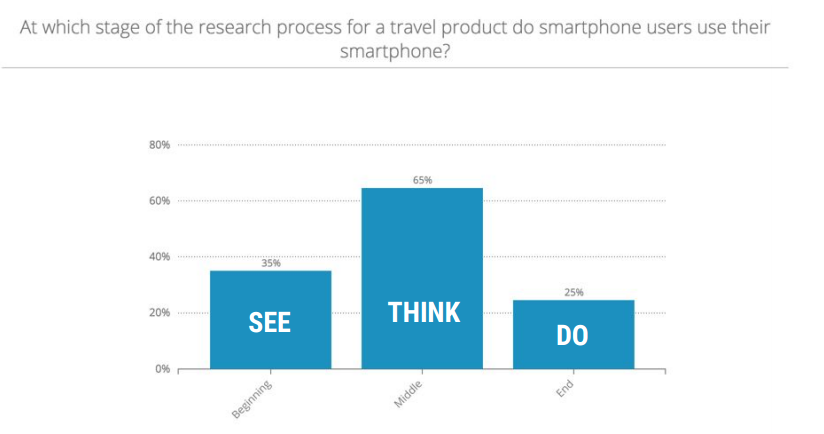Four expert Google employees spent the day with us at SearchStar for a Mobile Lab workshop.
The ever-expanding SearchStar Team crowded into the conference room ready for our meeting. Google’s mobile product specialist, Roman, dove straight in and began our sessions by asking each of us to explain what action we’d last taken on our smartphone. An array of answers surfaced - from the very acceptable ‘checked my work emails’ to the less kosher ‘swiped right a few times’. This exercise highlighted the integral role that smartphones play in our day-to-day lives.

Yes, we’ve all heard it before but the simple fact is: mobile consumption is booming and is only set to increase further. As such, it was hardly unsurprising that Roman began with a few statistics on the growth of mobile. Here are a few of his fun facts:
1. The most common device in British households is the smartphone, with each household owning an average of 2.1
2. Internet access by smartphone is at least as often as that by computer
3. 52% of people use their smartphone to research or purchase products
So what do these facts mean? That mobile digital marketing is vital, particularly in generating awareness. Although smartphones aren’t often attributed to the final conversion action, they still play an integral role in the purchase journey. 65% of people use their smartphone in the ‘thinking’ part of their consumer journey, while 35% of customers first ‘see’ the product they will go on to buy from their smartphone.

Currently, 25% of final conversion actions are completed on a smartphone. This may only be a quarter of all sales but the value that mobile has further along the funnel makes having a mobile friendly site incredibly valuable. Consumers want mobile experiences that are fast, easily navigable, and have the most important product information at their finger tips.
So, we know that a mobile friendly experience is valuable but how can we statistically prove this value? The answer is that we need to look towards micro-conversions. All too often we focus on the value of the final or macro-conversion. Yet, it is important to realise that this action is merely a part the of the purchase journey. Tracking micro-conversions will enable you to prove the importance of mobile higher up the conversion funnel. Mobile is part of the overall story and micro-conversions help assist the purchase journey and raise awareness, which ultimately leads to that conversion!
The importance of tracking micro-conversions was just one of many lessons that were gleaned from Google’s MLab session. SearchStar would like to say thanks to the Google team for sharing their insights, knowledge, and enthusiasm.
Top tip: It is important to assign the right attribution model to conversion actions in AdWords. For example using the Linear model means that you are able to see the impact of the upper funnel.

